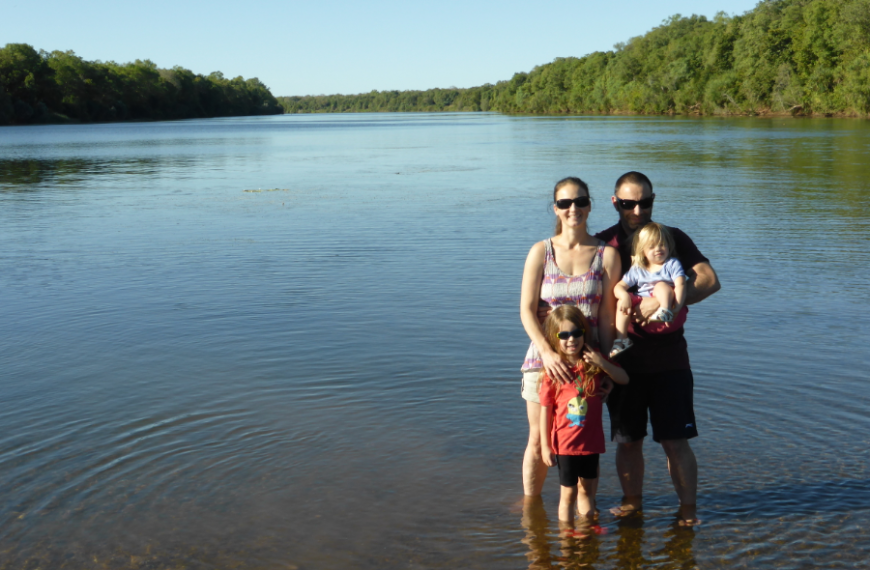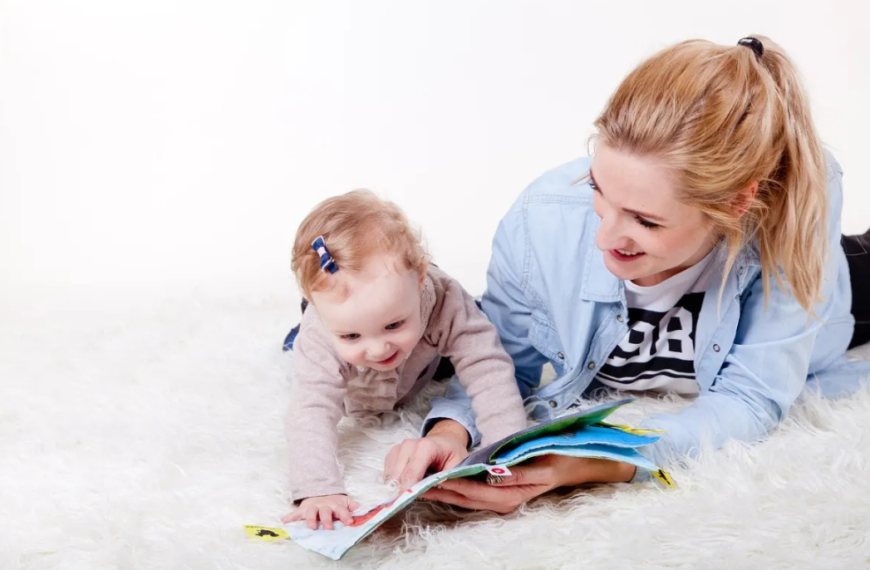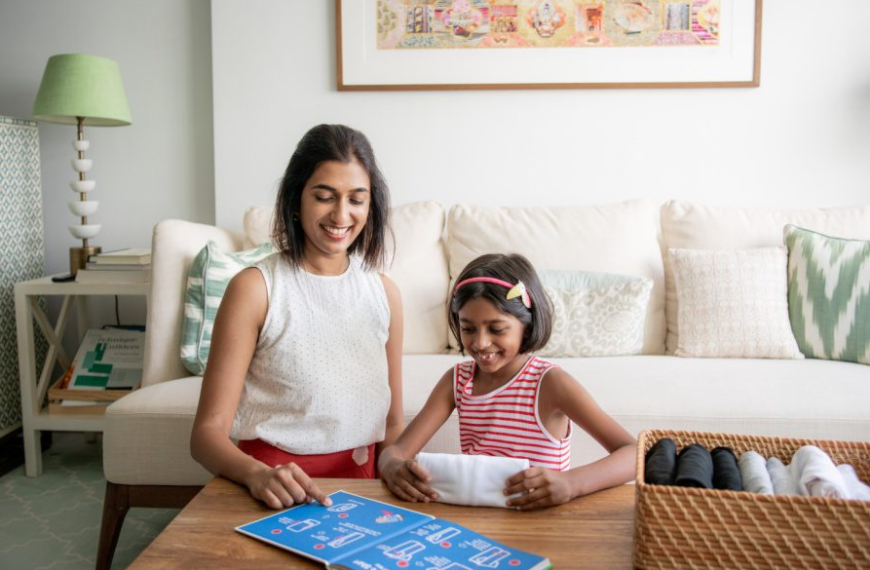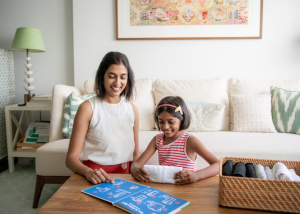Is it possible for your family to have more fun by doing fewer things? Minimalist parenting suggests that parents simplify activities and possessions to focus on what truly matters.
Experts believe that excessive materialism can negatively impact children. However, adopting a minimalist lifestyle can be challenging if you’re not already doing so. Here’s a guide on how to raise kids who appreciate what’s truly important.
Why minimalist parenting?
For a long time, parenting has been about having more. More advice from experts, more stuff, more competition, more concerns about safety, and more decisions to make about education, nutrition, and entertainment.
The outcome?
Parents feel overwhelmed and confused, and kids who are overscheduled and overly directed. Making decisions here and there for fifteen minutes might not seem like a lot, but the time spent handling the constant flood of choices each day quickly adds up. Moreover, the mental clutter it creates casts a shadow over everything.
What is minimalism?
The Minimalists, Joshua Fields Millburn, and Ryan Nicodemus explain:
Minimalism is a tool to help you get rid of unnecessary things in your life so you can concentrate on what truly matters—leading to happiness, fulfillment, and freedom.
In action, it can be seen in various ways, from living with fewer than 100 items to having a simple wardrobe that eliminates morning decision-making.
Why choose minimalist parenting?
Over-parenting is not just tiring for you; it also hampers your child’s creativity. Recent studies indicate that the phenomenon of tiger parenting could potentially lead to long-term mental health issues. Qing Zhou, an assistant professor of psychology at UC Berkeley, who leads the Culture and Family Laboratory on campus, states, “Children raised by authoritarian parents are showing maladaptive outcomes, such as depression, anxiety, and poor social skills.”
According to Joshua Becker, author of “The More of Less: Finding the Life You Want Under Everything You Own,” 75% of parents are too busy to read to their children at night. There’s a growing trend of children being placed in daycares and after-school activities.
Americans are finding it challenging to take vacations, with about 33% experiencing extreme stress daily. Additionally, nearly 50% of Americans admit to regularly lying awake at night due to stress.
This is a problem. We have become too busy.
What if this excess didn’t consume you? What if your kids had plenty of time and breathing space and felt empowered to make their own choices?
When you simplify your child’s world, you help them become aware of the present moment, and you give them the space to let their imagination blossom.
It doesn’t mean you let them wander the forest unsupervised, but with some freedom from excessive scheduling or stuff, your child has the chance to truly flourish.
Give your child the chance to just be
Most kids are used to being busy. They might feel bored when they’re not learning, playing sports, or watching screens. Instead of immediately seeking more distractions, teach your kids the value of doing nothing—simply relaxing and calming their minds. This can make them less stressed and more in tune with themselves. Teaching this skill may not be as challenging as you think.
Apply a “do less” approach to playtime
Once your child gets used to minimalism, their creativity will kick in, and they will transition from breaks to deep, creative, mental, or physical play. This mental reset removes distractions, allowing them to engage in play and activities that nourish their brain and body.
For younger kids, downtime leads to open-ended, imagination-driven play with limited toys and a focus on nature, which is crucial for their development. For teenagers, downtime can serve as a great segue into studying, homework, or even sports and music practice.
Pediatric occupational therapist Angela J. Hanscom suggests three hours of outdoor play per day for optimal development in her book Balanced and Barefoot: How Unrestricted Outdoor Play Makes for Strong, Confident, and Capable Children. She highlights that many modern children spend so much time indoors with structured activities and screen time that they may initially struggle with outdoor play.
Children may take some time to get used to open-ended, creative, and physical play, especially if it’s not a regular part of their routine. If you want your kids to spend more time playing outdoors or engaging in open-ended activities, a short session of doing nothing can be a starting point. Use this distraction-free time, even if it’s just for a few minutes, to help your children reset.
When you control what happens during playtime, you’re limiting your child’s independence and their ability to think and entertain themselves. Giving children fewer toy options allows them to be more creative and exercise their imaginations. As Einstein said, “The true sign of intelligence is not knowledge but imagination.”
Allow your child to make decisions
Giving your child the freedom to make decisions doesn’t mean allowing them to eat ice cream and watch TV endlessly. It means providing more time for free play and letting them choose their preferred activities.
Do your kids truly want a packed ballet, karate, swim lessons, and Mandarin schedule? Allowing them to choose activities helps develop their decision-making skills. It also means less stress and fewer back-and-forths between activities for you. Minimalist parenting for the win!
It doesn’t mean your kids should have no activities, but there should be a balance with more emphasis on what they genuinely want to do.
Keep your home free from excess stuff
Your child’s room is their special place at home. While it’s good to make shared areas less cluttered for your peace of mind, helping your little ones tidy up their own space can also show them the advantages.
Think about making some tech-free zones in your house. Identify the main areas where your family spends the most time and try to make one of them completely free from technology.
Also, keep play areas organized by rotating toys. Introducing too many toys at once can affect a child’s attention span. When there are too many options, they might not fully enjoy and appreciate the toy in front of them.
Use fringe hours
Finding time to do nothing can start with the fringe hours, those moments we often overlook due to fatigue. These hours can be a valuable resource with some simple lifestyle adjustments. You can carve out a little time for yourself by:
1. Waking up before your early-rising children to enjoy some quiet moments.
2. Doing small preparation tasks, like setting out the kids’ clothes or packing daycare bags, the night before, allowing you to have some time during breakfast.
3. Reclaiming a part of your evening if mornings are too busy.
4. Allocate twenty minutes before bedtime, setting an alarm to remind you to stop whatever you’re doing.
Let non-essential housework wait
Set a mantra that the laundry can wait. Parents often use downtime at home, the hours that children are napping or nicely occupied with Lego construction, to work. They open their work computer or knock out some household chores while their children enjoy their own do-nothing activities.
As the children happily engage in a singular and refreshing activity, parents rush around trying to “catch up” and then hit the evening hours exhausted and ready to sit comatose on the couch once the last bedtime story has been read.
Rethink what is most important for the family. The laundry will get done; it always does. There will be a meal for dinner; there always is. But will there be a focused parent at the dinner table ready to listen and respond because they had time for self-care?
Course correction beats perfection
Parenting is a high-stakes endeavor, and the pressure to make the right choices can be overwhelming. What if you make the wrong choice? Will it negatively impact your child’s future?
Firstly, if you’re reading this, you’ve likely made good choices, providing your child with love, education, and basic needs. While not every day is perfect, your good intentions go a long way in shaping your child’s well-being.
Secondly, each decision you make opens up a range of possible outcomes. Most of the time, you have the opportunity for do-overs, allowing you to change course and discover new adventures.
It’s crucial to acknowledge that making choices comes with inevitable hardships and disappointments, some within your control and others beyond. While the instinct is to shield your kids from pain, difficult experiences often carry valuable lessons.
Adjusting your parenting approach as your family evolves is not wishy-washy but rather a sign of openness to the world’s vastness and your family’s changing needs. As you simplify decisions in your life, consider reducing the intensity of the ones that remain. Briefly explore your options, tap into your inner wisdom, and make choices with the flexibility to adjust as circumstances change.
Embracing minimalist parenting involves intentional thought. Providing space and time for the whole family to do nothing fosters a positive family rhythm. Through this, your family can learn to appreciate who they are over what they possess.












